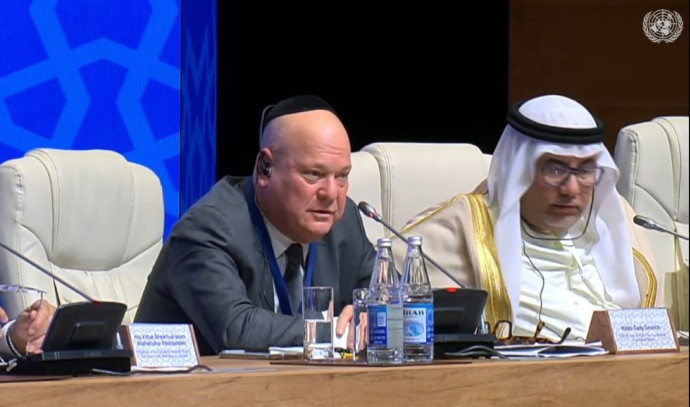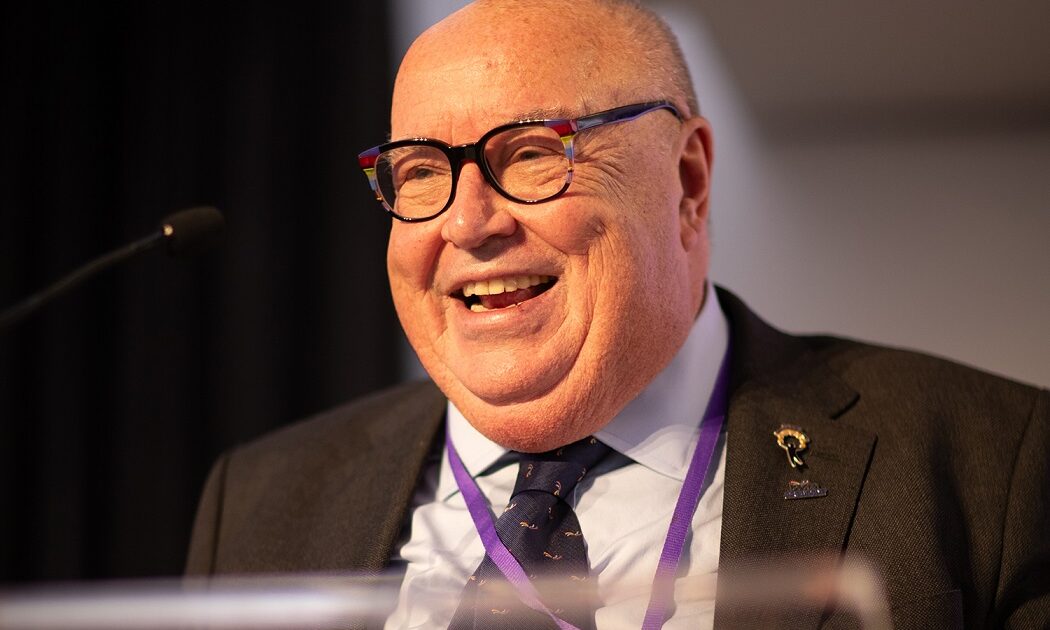World
World leaders tackle antisemitism at Global Forum in Azerbaijan

Amid escalating global conflicts and a sharp rise in antisemitic incidents, the sixth World Forum for Intercultural Dialogue concluded in Baku, Azerbaijan, drawing prominent figures from various sectors to foster international cooperation and promote peace.
Gadi Gronich, CEO of the Conference of European Rabbis (CER), highlighted the worsening situation of religious tolerance, especially affecting Jewish communities. “Since October 7th, I have sensed a growing unease and a withdrawal among religious leaders,” Gronich said. He expressed concern over the limited number of cities where Jews can freely practice their faith without fear. “Religious leaders across Europe must act decisively against hate speech and the surge in antisemitism,” he urged.
The forum, which spanned three days, aimed to facilitate dialogue and establish collaborative frameworks among leaders of different faiths, including Judaism, Islam, and Christianity. The event featured plenary meetings and panel discussions with government officials, international organization representatives, cultural figures, journalists, and religious leaders worldwide.
235% increase in antisemitic incidents in 2023 compared to 2022
Statistics shared at the conference painted a grim picture of the current state of antisemitism. A joint report by the Diaspora Affairs and the Combating Antisemitism, the World Zionist Organization, and the Jewish Agency highlighted a 235% increase in antisemitic incidents in 2023 compared to the previous year, with a significant number of these incidents occurring in the United States and Europe.
Addressing the conference, Gronich recounted personal experiences demonstrating the importance of the forum’s objectives. “Baku is one of the few places today where I can walk down the street wearing a kippah without fear,” he said. Despite the challenges, he remains optimistic about the potential of interfaith dialogue to mend strained relationships and influence political discourse to curb hate speech and antisemitism.
Nehal Saad, chairman of the Alliance of Civilizations at the UN, echoed Gronich’s sentiments, reaffirming the United Nations’ commitment to combating hate crimes against religious communities. “We take a firm and uncompromising stand against all forms of hatred, including antisemitism, Islamophobia, and hostility towards Christianity,” Saad declared.










